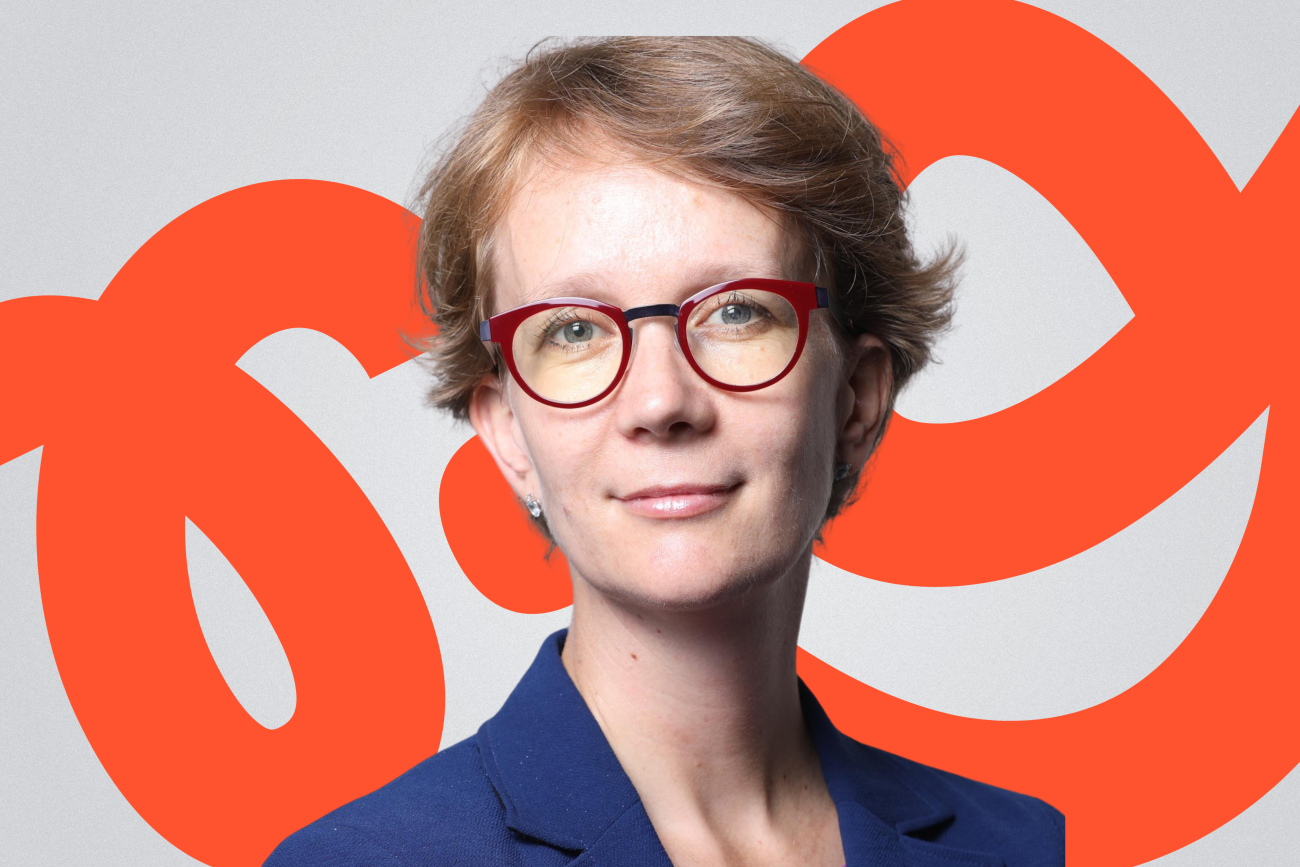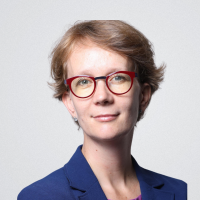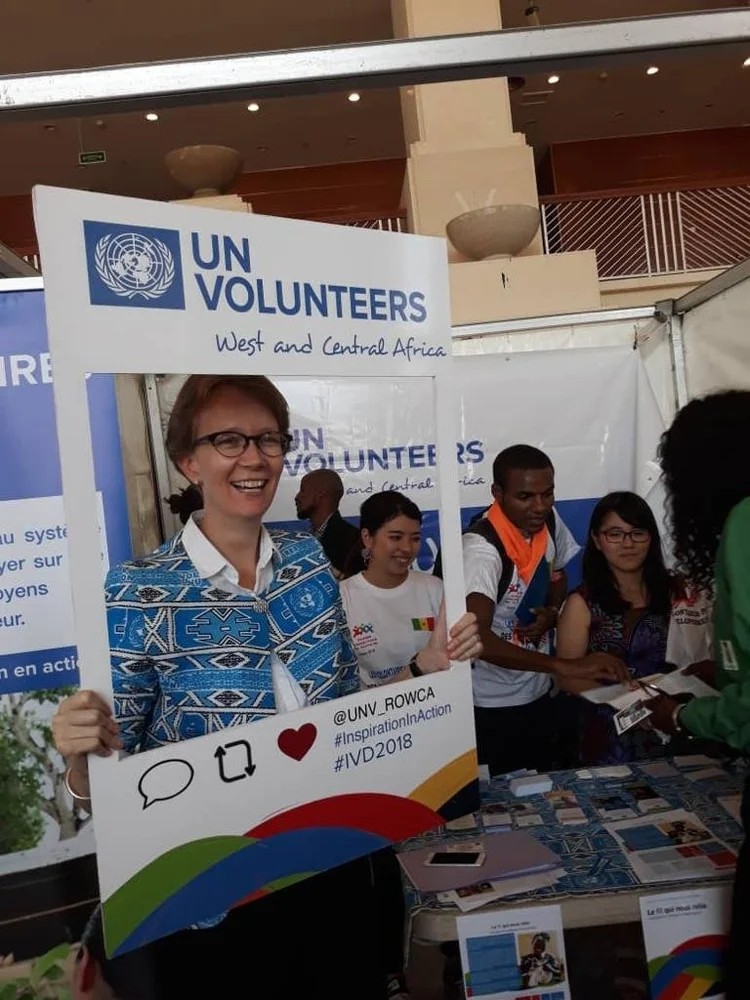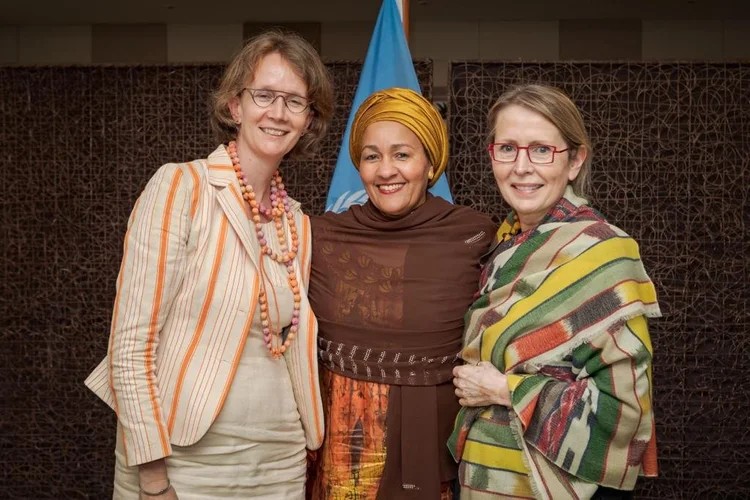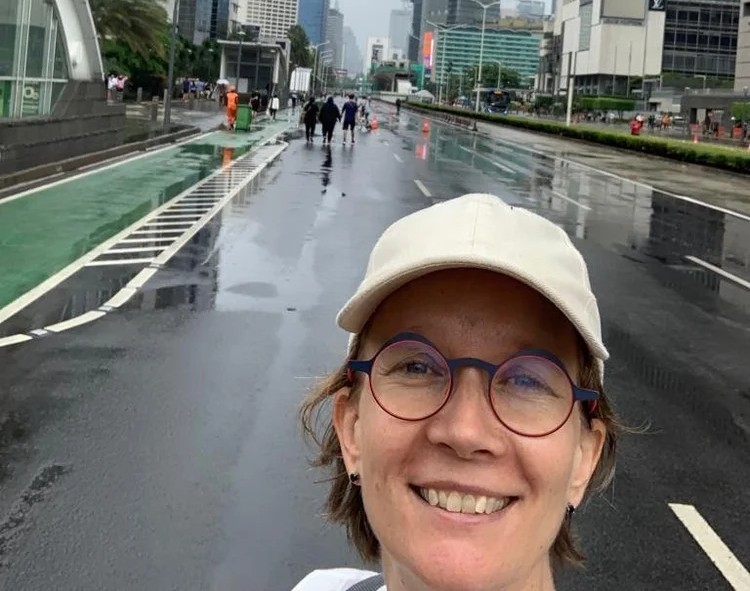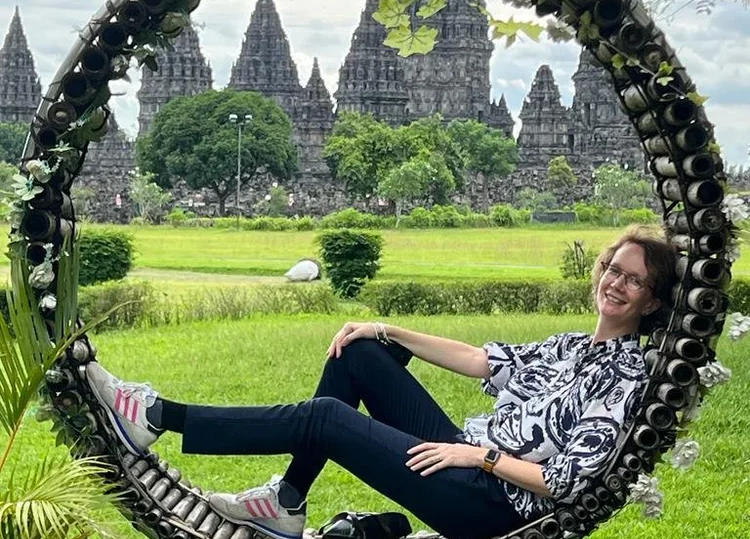Future By Design Talks with Afke Bootsman
Head of Resident Coordinator's Office/Senior Strategic Planner for the United Nations system in Indonesia
We need a UN that is ready and aligned with the reality of today and tomorrow. So, we work with agencies and with the government to address issues like climate change, just energy transition, and digital transformation. We work towards an Indonesia where everyone, regardless of background, has access to, for example, good health care, quality education, and nutrition, and that no one is left behind.
We also work with the government on the reform of food systems towards more healthy diets; we work with the government on an energy transition that is fair and just, which means that many people who have been employed in the coal sector, for example, will be equipped and ready to work in a system based on renewable energy. That doesn't mean I am the expert on all those topics, but my work as a coordinator is to make sure that the right expertise is mobilized and brought together in the interest of Indonesia.
We try to make the UN more focused, more efficient, and more effective. The world as we know it is very complex. We believe the problems of today require a multilateral solution, and we need that solution to be of value to the people that we serve.
So, how do we reach those people who do not know what the United Nations is or other organizations that work towards the same goals? We need to understand what triggers the interest of those groups, and for this, we need to have designers and communicators who have the creativity and the ability to translate complex concepts into accessible pieces.
I had the opportunity to live in Senegal for four years and travel to different countries in the region - it allowed me to get a sneak peek into the way of life, the culture, and the strong drive of people to find solutions to problems that are homegrown. I have seen a lot of innovation there, and that is very motivating - especially with young people - there are a lot of people who are driven to make tomorrow better than today, and that has inspired me.
I worked for the UN Volunteers Programme in Senegal, where I set up the Regional Office, and through my encounters with volunteers there, you see energy and determination that just leaves you in awe. Whether those are people who work in climate change or NGOs for child rights or volunteers giving opportunities for skills building for young people - this has been a very rewarding and rich experience for me.
I really wanted to put more of a spotlight on volunteer organisations in the Sahel. So we brought some of them together in Burkina Faso, and we discussed how we can scale up the visibility of what volunteers do to make the Sahel a more prosperous, green, and peaceful region in Africa.
FBD designed the campaign with a branding that was aligned with the colours of the Sahel, and each colour represented something positive - I found it extremely innovative and compelling.
We were extremely lucky and privileged to work with Future by Design in making the visual identity of the Sahel Volunteers initiative. The thinking that FBD put into the visual campaign exceeded my expectations. And it wasn’t just me; FBD won the Gold International Design Award for this beautiful campaign. It made a big impact, and I feel very proud that we could do this together.
The beauty of working with the UN is that you meet people from all walks of life, nationalities, and people with different life experiences, backgrounds, technical expertise, and very deep passions and motivations.
I have also been lucky to be at the birth of many new initiatives. I mentioned already that I opened the West and Central Africa Regional Office for the UN Volunteers programme. In my current role in Indonesia, I'm at the birth of the implementation of UN reform here. I had set up a large-scale private sector programme when I was based in NY, and when I was in Lebanon, I was part of the group that conceived and implemented the first integrated crisis response plan addressing simultaneously the needs of the Syrian refugees and those of the Lebanese population.
Being part of such initiatives and helping them to get set up is highly motivating. There are no textbooks for those situations. You have to work with others applying a ‘can-do’ mentality.
On a professional level, I have always made it a priority to document knowledge. This is not per se the most exciting thing to do - but I know that it’s important, so I invest in this together with the teams with whom I've been working.
The first time the UN reform was announced was in 2018, and it started to be implemented in 2019. At that time, no one had anticipated the world we are living in today: the COVID-19 pandemic in 2020, the war in Ukraine with Russia, the war in Palestine, the unprecedented impact of climate change etc.
Those are all putting enormous pressure on the multi-lateral system. So while the UN reform on its own is already a huge endeavour to implement, those additional dynamics have made the task even harder.
We speak about a massive change process, and change is never automatically embraced by human beings. So giving shape and form to the UN reform, I do see it as a challenge but not as an insurmountable one.
I still wholeheartedly subscribe to the conviction that working together makes you stronger and better equipped to deal with challenges and prevent them. I have never been afraid of challenges, and I’m still not today. Sitting idle is not an option for me.
We were able to get some funding from our headquarters to facilitate and implement projects. There are three projects which are more externally focused and that look at how we can work better with organisations representing persons with a disability and how we can be better prepared for an inclusive response when disasters hit. We also have a number of projects that are internally focused on looking at how we make our office more inclusive for when we have colleagues or visitors coming to our building so that they don't face physical barriers. We have looked at how our frontline staff, such as security officers and receptionists, welcome the visitors with a disability.
For me, it's a conscious choice of staying driven and knowing why I do the work I'm doing. It does indeed require today a bit more work than when I started several years ago in Guyana. It's simply a challenging time. I want to believe that the good is stronger than the bad. I get so inspired by the people I work with, and I want to hold onto that. We really need to continue to inspire each other. This is also why, for example, I believe so much in knowledge management because this is one of the ways to help kickstart colleagues elsewhere in the world to do similar things.
I believe the current UN Secretary-General is ambitious. He has launched his vision of the future for global cooperation through what he calls ‘Our Common Agenda’. In 2023, this was accompanied by 11 policy briefs with concrete proposals from the Secretary General on how to address challenging topics such as international financial architecture, global digital compact, a new agenda for peac,e among 8 others. Let's study those topics and take them forward - if they need adjustments, let's adjust them and make them better, but let's not ignore them.
I am a strong advocate for being solutions-oriented in addressing issues. Whether it's on the conflict side, the climate side, or the inclusion side, a lot of work is to be done. Let's continue this important work, and let's make sure we engage with all the different groups that are willing to make a positive change.
A few months ago, during the SDG Summit in New York we heard of so many inspiring solutions on how to fast-track on the SDGs. We need more of this.
Of course, each and every individual can do something that has a positive contribution to the SDGs. You can do it through your professional trajectory, but also through your day-to-day lives, personal passions, hobbies, and networks. We should continue doing what should and can be done and keep talking about it. This can be around the use of plastics; giving a voice to specific groups; or volunteering for a social cause.
Indeed, today, we are not where we want to be with the SDGs - only about 15% globally speaking are on track, which means 85% have regressed or are stalled. This is very worrying. Let’s do what we can do at all levels.
We must all work on the SDGs. I don't want to simplify things, but we don't have a choice. If we want to have a world in which our children and their children and future generations who are not born yet can live a fulfilling life, we owe it to them to do what we can.
